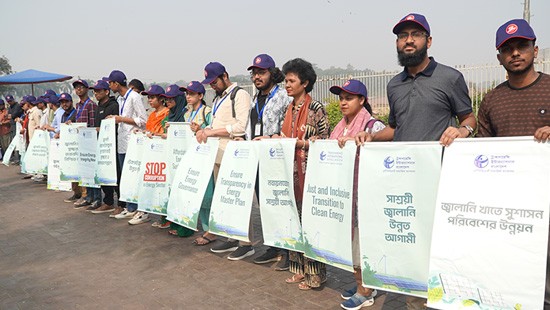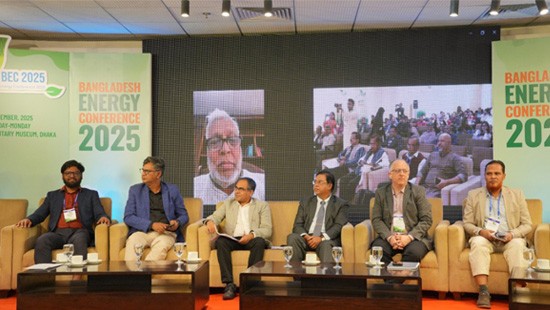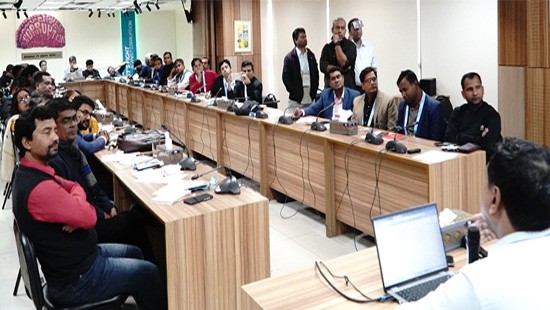Published: 28 January 2021

Bangladesh scored 26 on a scale of 100 among 180 countries in the Transparency International’s (TI) Corruption Perceptions Index (CPI) 2020, while the global average score is 43.
Bangladesh is ranked 12th from the bottom; it was 14th from the bottom last year and 146th from the top among 180 countries in the 2020 index that has ranked the countries and territories by their perceived levels of public sector corruption.

Among the eight South Asian countries, Bangladesh remains 2nd lowest in score and rank – better than only Afghanistan, which has scored 19 and ranked 165th from the top. Bangladesh’s ranking is the 4th lowest among 31 Asia-Pacific countries included in the index, better than Cambodia, Afghanistan and North Korea.

TI Bangladesh has termed the performance as disappointing and has pointed out that it depicts the prevalence of worrying levels of corruption.
“Bangladesh's score has remained unchanged for the third time in the index. Although it may seem comfortable, countries like Somalia and Afghanistan, ranked first from bottom in the Global index, have also increased their points by 3 points. So, there is no chance of complacency with Bangladesh's unchanged score,” TIB Executive Director Dr. Iftekharuzzaman said in a virtual press conference on January 28, 2021, on the occasion of the global release of CPI 2020.
According to CPI 2020, among South Asian countries, Bhutan topped the rank (score 68, rank 24 from top) counting from the top while the Maldives secured 2nd place, recording the highest rise of the score by record 14 points (43) and jumped to 75th position from the top compared to 130th in 2019.
India and Sri Lanka ranked 86th and 94th with 40 and 38 respectively, emerging as the 3rd and 4th toppers among the south Asian countries. Nepal ranked 117th with a score of 33, followed by Pakistan that scored 31 with 124th position. Afghanistan, which has scored 19 and ranked 165th from the top, remains at the lowest among South Asian countries despite scoring three points higher than their last year’s 16/173.
Speaking about the corruption in the health sector, Dr. Zaman said, “Explicitly exposed corruption in the country's health sector at the critical juncture of the Covid-19 epidemic has also hampered further improvement in our position. Besides, the Prime Minister's declaration of `zero tolerance for corruption` is a manifestation of the highest level of political will, but its implementation is lacking.”
He further added that “The prospect to improve is being lost due to ineffectiveness of the institutions responsible for implementing this declaration”.

The top countries on the CPI 2020 are Denmark and New Zealand, with scores of 88, followed by Finland, Singapore, Sweden and Switzerland, with 85 each. The bottom countries are South Sudan and Somalia, with scores of 12, followed by Syria (14), Yemen (15) and Venezuela (15).
According to CPI 2020, countries with more pervasive corruption are least equipped to handle crises, like the COVID-19 pandemic. Besides, corruption undermines the global health response to COVID-19 and contributes to a continuing crisis of democracy.
In his presentation, the TIB Executive Director outlined factors behind the disappointing result of Bangladesh, which included dysfunctional key institutions of accountability and sustained impunity, policies and actions increasingly detached from public interest reflecting pervasive conflict of interest; and continued exposure of widespread corruption, especially scandalous corruption in the health sector during the Covid-19 crisis.
“Bangladesh's position has not improved due to the abuse of political power, erosion of political integrity and linkage of politics with corruption and criminality; shrinking media and civil society space, restrictions of freedom of speech, fraud in financial and banking sector and political control of public contracting,” said Dr. Zaman.
“The ACC has so far failed to hold the big fishes accountable. So, despite the highest political promises, zero tolerance for corruption has become ineffective. Besides, government institutions have been so politicised that they now operate like any other political institution,” he concluded.
The press conference also clarified that no nationally generated data, including TI or TIB’s research or that of any other national chapter of TI is considered for the CPI. Unlike TI chapters of other countries, TI Bangladesh releases corruption perceptions index only.
Produced by the research team of TI-Secretariat and launched in 1995, the Corruption Perceptions Index, Transparency International’s flagship research product, has become the leading global indicator of public sector corruption. The index offers an annual snapshot of the relative degree of corruption by ranking countries and territories from all over the globe.
For more information on results and analysis of Bangladesh in CPI, please click here .
For a recorded video of the press conference on the CPI 2020 release, please visit here
For global results and analysis, please visit here.






